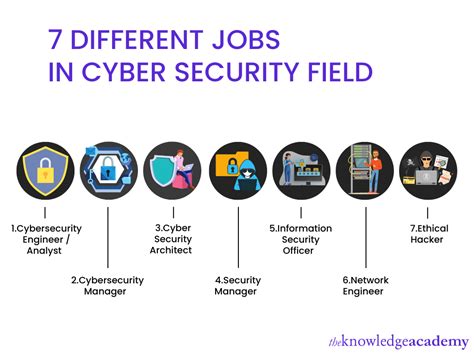As a security engineer intern, you’ll play a vital role in protecting your organization’s data and systems from cyberattacks. You’ll work with a team of experienced security professionals to implement and maintain security measures, and you’ll learn about the latest security trends and technologies.

If you’re interested in a career in cybersecurity, an internship is a great way to get started. You’ll gain hands-on experience in a real-world setting, and you’ll make valuable connections that can help you land a job after graduation.
What You’ll Do as a Security Engineer Intern
As a security engineer intern, you’ll be responsible for a variety of tasks, including:
- Implementing and maintaining security measures
- Monitoring security logs and alerts
- Responding to security incidents
- Investigating security breaches
- Developing and testing security plans
- Keeping up with the latest security trends and technologies
You’ll also have the opportunity to work on special projects, such as developing new security tools or conducting security audits.
What You’ll Learn as a Security Engineer Intern
As a security engineer intern, you’ll learn about a wide range of security topics, including:
- Network security
- Cloud security
- Application security
- Data security
- Incident response
- Security compliance
- Security risk management
- Vulnerability assessment and penetration testing
You’ll also develop strong analytical and problem-solving skills.
How to Get a Security Engineer Internship
There are a few things you can do to increase your chances of getting a security engineer internship:
- Get good grades in your coursework.
- Join cybersecurity clubs and organizations.
- Attend cybersecurity conferences and events.
- Network with security professionals.
- Build a strong portfolio of cybersecurity projects.
You can also search for internships on websites like LinkedIn, Indeed, and Glassdoor.
What to Expect from a Security Engineer Internship
Most security engineer internships are paid positions. You can expect to work 40 hours per week, and you may be required to work overtime during busy periods.
You’ll be supervised by a senior security engineer who will provide you with guidance and support. You’ll also have the opportunity to work with other members of the security team, including security analysts, incident responders, and penetration testers.
Benefits of a Security Engineer Internship
A security engineer internship can provide you with a number of benefits, including:
- Hands-on experience in a real-world setting
- Valuable connections that can help you land a job after graduation
- A deeper understanding of cybersecurity
- Enhanced analytical and problem-solving skills
If you’re interested in a career in cybersecurity, an internship is a great way to get started.
The Future of Security Engineering
The future of security engineering is bright. The need for qualified security professionals is growing rapidly, and there are many opportunities for advancement in the field.
As a security engineer, you’ll play a vital role in protecting your organization’s data and systems from cyberattacks. You’ll be responsible for developing and implementing security measures, and you’ll be on the front lines of the fight against cybercrime.
If you’re interested in a career that is both challenging and rewarding, security engineering is a great option.
10 Tips for Success as a Security Engineer Intern
Here are 10 tips for success as a security engineer intern:
- Be proactive. Don’t wait for someone to tell you what to do. Take the initiative to learn about the company’s security policies and procedures, and ask questions when you don’t understand something.
- Be curious. Always be on the lookout for new ways to improve the company’s security. Attend conferences, read security blogs, and talk to other security professionals.
- Be a team player. Security is a team effort. Work with your colleagues to identify and resolve security issues.
- Be adaptable. The security landscape is constantly changing. Be prepared to learn new technologies and adapt to new threats.
- Be ethical. Always act in the best interests of the company. Don’t compromise security for personal gain.
- Be professional. Dress appropriately, be on time for meetings, and communicate effectively.
- Be respectful. Treat your colleagues with respect, even if you disagree with them.
- Be positive. A positive attitude can go a long way in a challenging environment.
- Be persistent. Don’t give up if you don’t understand something. Ask questions, do research, and keep trying until you figure it out.
- Be yourself. Don’t try to be someone you’re not. Be genuine and authentic, and people will respect you for it.
Frequently Asked Questions
What are the qualifications for a security engineer internship?
Most security engineer internships require a bachelor’s degree in computer science, information technology, or a related field. Some internships may also require experience in cybersecurity or a related field.
What is the average salary for a security engineer intern?
The average salary for a security engineer intern is \$20 per hour. However, salaries can vary depending on the company, location, and experience level.
What are the benefits of a security engineer internship?
Security engineer internships offer a number of benefits, including:
- Hands-on experience in a real-world setting
- Valuable connections that can help you land a job after graduation
- A deeper understanding of cybersecurity
- Enhanced analytical and problem-solving skills
How can I get a security engineer internship?
You can search for security engineer internships on websites like LinkedIn, Indeed, and Glassdoor. You can also network with security professionals and attend cybersecurity conferences and events.
Conclusion
A security engineer internship is a great way to get started in the cybersecurity field. You’ll gain hands-on experience in a real-world setting, and you’ll make valuable connections that can help you land a job after graduation. If you’re interested in a career in cybersecurity, an internship is a great option.
